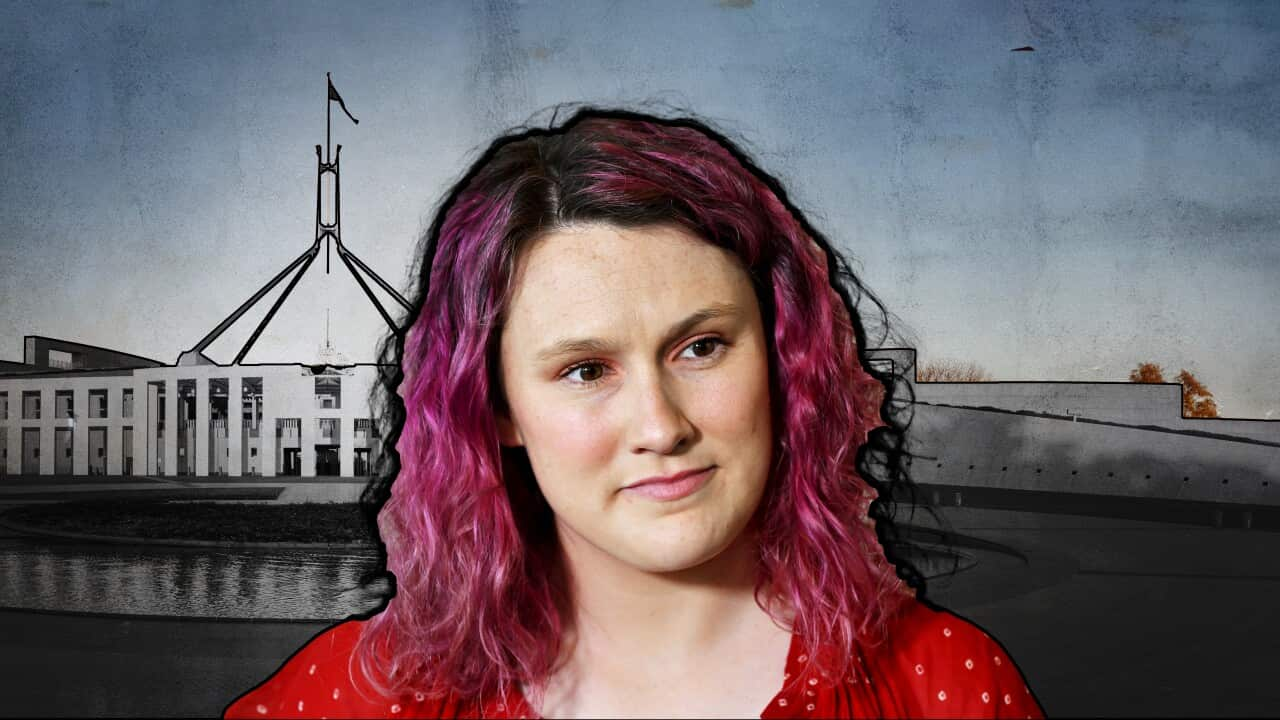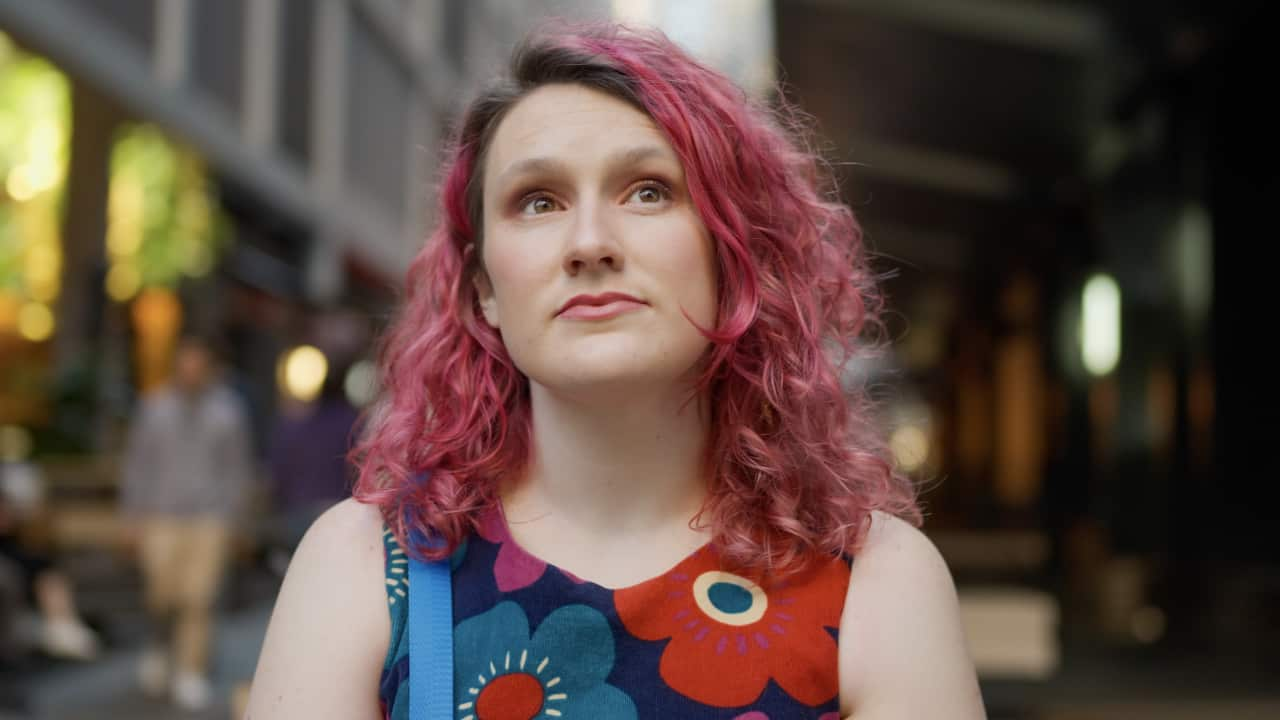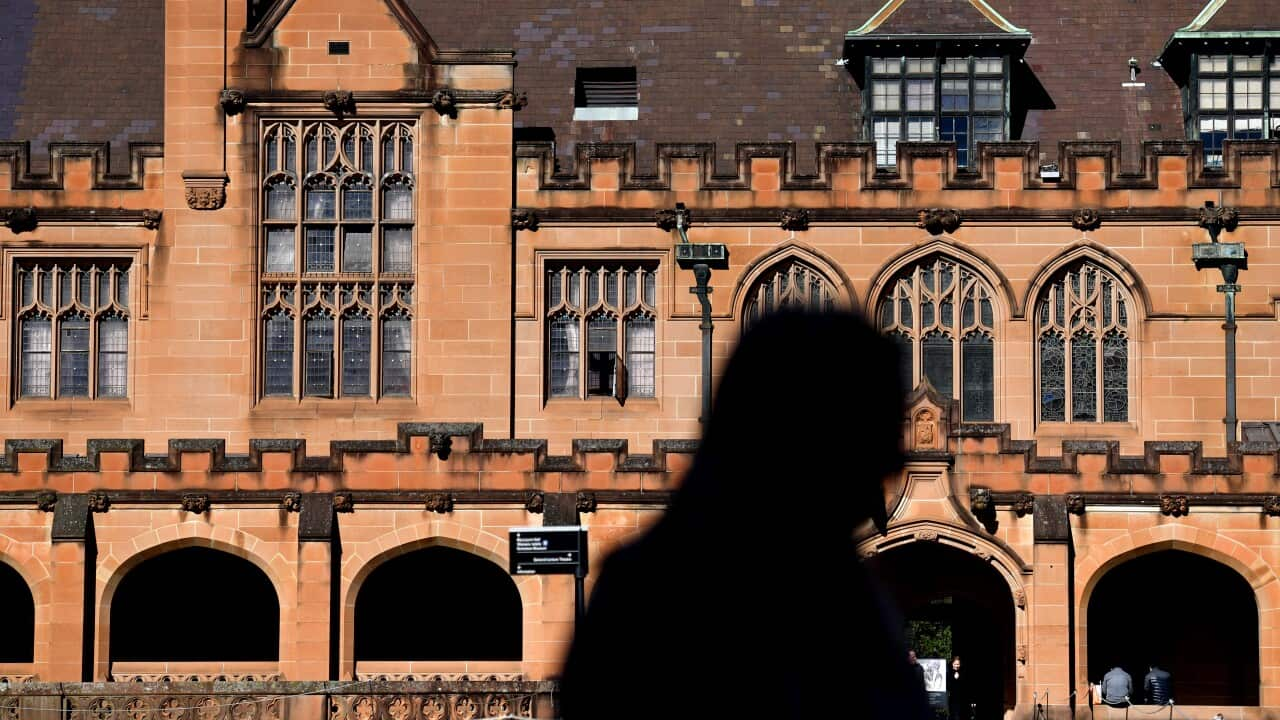Key Points
- Legal experts and advocates will meet across the country this week to examine Australia's consent laws.
- The hearings are designed to look into whether Australia's consent laws can be better harmonised.
- High rates of sexual assault and harassment at Australian universities will be central to the hearings.
This article contains references to sexual violence.
Consent laws across Australia will be examined during a Senate inquiry this week, as legal experts and advocates discuss how to address the “crisis” of sexual violence.
Sexual assault survivor and advocate Saxon Mullins hopes the government will listen and take appropriate action.
“I hope they take this opportunity to really listen, and decide how they’re going to fix this massive problem in this country,” she told SBS News on Monday.
“Because what we’re doing is clearly not good enough.”
Mullins says she was raped in an alleyway behind a Sydney nightclub by a man she'd met minutes earlier.
She endured two trials and two appeals, and although the court found she did not consent to sex with the man accused, the judge ultimately ruled he had reasonable grounds for believing she had. He was acquitted in 2017.
Mullins has been among those driving discussions around consent for several years. She said the sector has, for a long time, viewed sexual violence in Australia as being at “crisis point”.
“Having this inquiry legitimises that view, and shows the government is saying, ‘enough is enough and we have to do something about this’.”
The hearings will start at Parliament House in Canberra on Tuesday morning, before travelling to Melbourne and Sydney over three days.
What is consent and how is it defined in Australian law?
Consent is an agreement between two or more people. When it comes to sex, consent in a social context is understood as a free and voluntary agreement to participate in a specific sexual activity.
The term 'affirmative consent' means someone is actively agreeing to or seeking another person’s agreement to that activity.
Dr Rachael Burgin is a senior lecturer in criminal justice at Swinburne University and chief executive of advocacy organisation Rape and Sexual Assault Research and Advocacy (RASARA). She is appearing at the inquiry on Tuesday, alongside Mullins, who is the director of advocacy at RASARA.
Consent is “true, informed, meaningful, voluntary, free. It’s sober, it’s not affected by drugs or alcohol, it’s not affected by power dynamics,” .
Burgin said the legal definition of consent is more complicated because it differs in every jurisdiction.
The legal age of consent - at which someone is deemed legally competent to agree to sexual activity - also varies between 16 and 17 across jurisdictions.
In jurisdictions that apply affirmative consent, there is also a requirement to proactively communicate consent, while others do not have this.
Tasmania was the first state to move towards affirmative consent in 2004, while NSW, the ACT and Victoria have recently changed their laws and Queensland has announced it will move to do the same.
What is the inquiry about?
The hearings are designed to look into whether Australia's consent laws can be better harmonised.
The committee has a wide mandate to look into anything relevant, but a major part of its focus will be:
- Inconsistencies in consent laws across different states
- The potential benefits of harmonising them
- How they impact sexual assault survivors as they move through the justice system
Experts warn harmonising consent laws is complex and, if done incorrectly, can be damaging.
Mullins believes there are "pros and cons" to the idea, saying state rivalry seen "not just in sports but in law" can be a "useful tool" in improving outcomes.
"[But] sometimes we see the lowest common denominator gets through," she said.
"It's similar to what is currently happening now, where states will look over each other's shoulder and just do what's easiest. I think that is one of the worries with harmonisation - that we would just pass through what is easiest, not what is necessarily best practice."
The Law Council of Australia agreed harmonising laws risked a "levelling down" across the board, and is wary about diving in carelessly.
"[But] the challenges outlined in this section are by no means prohibitive and, with sustained consideration, may be overcome,” it said in its submission to the inquiry.
Why are universities a particular focus?
High rates of sexual assault and harassment at Australian universities will be central to the hearings.
While their efforts to end rape on campus have been criticised for years, Mullins says the hearings take place at an especially "pivotal point" in the debate.
"Hearing from the education union and the education sector ... will be really, really important and really, really timely in the face of this backlash," she said.
That backlash has been exacerbated by the revelation, reported by The Saturday Paper last weekend, that Universities Australia has scrapped an in-person consent campaign for students, after objections from a minority of vice-chancellors over its explicit content.
The decision comes despite a 2021 Universities Australia report finding nearly 5 per cent of students had been sexually assaulted since starting university, including more than 1 per cent who had been sexually assaulted in the previous 12 months. Just 5.6 per cent of that cohort made a formal complaint about their assault.
The report also found that 16 per cent had been sexually harassed since starting university, and only 3 per cent of that group lodged a complaint. Complaint systems at universities across the country also came under scrutiny, with more than half of students knowing "nothing or very little" about how to formally report harassment.
Greens spokesperson for women Larissa Waters criticised the sector's performance on combating sexual assault, saying the program had been scrapped over "prudish nonsense".
"Universities have a clear responsibility to provide a safe environment for students. With 275 sexual assaults in a university setting each week, it's clear they are failing," she said.

Larissa Waters has criticised universities for reportedly walking away from an in-person consent student program. Source: AAP
Who's appearing in the inquiry?
Universities Australia will be appearing, as will End Rape on Campus and other student groups aiming to address the issue.
Investigative journalist Jess Hill, whose documentary Asking For It aired on SBS earlier this year, will open proceedings in Canberra on Tuesday morning, with Teach Us Consent founder Chanel Contos, Mullins and Burgin to give evidence later that day.
Legal experts, women's advocacy groups, and unions will also be heard over the three days.
The federal Attorney-General's Department, and the Department of Social and Services and Education will also give testimony. They would be likely to coordinate any efforts to harmonise consent laws nationally.
How big is the issue of sexual violence in Australia?
Around 2.8 million people aged 18 and over have experienced sexual violence (including assault and/or threats) since the age of 15, according to the latest Personal Safety Survey from the Australian Bureau of Statistics (ABS).
That includes about one in five women (22 per cent) and one in 16 men (6.1 per cent) in 2021-22.
In 2021, according to separate ABS data, there were on average around 85 sexual assaults recorded by police per day.
There were six times more female victim-survivors than males.
- additional reporting by AAP.
If you or someone you know is impacted by sexual assault, call 1800RESPECT on 1800 737 732 or visit . In an emergency, call 000.













